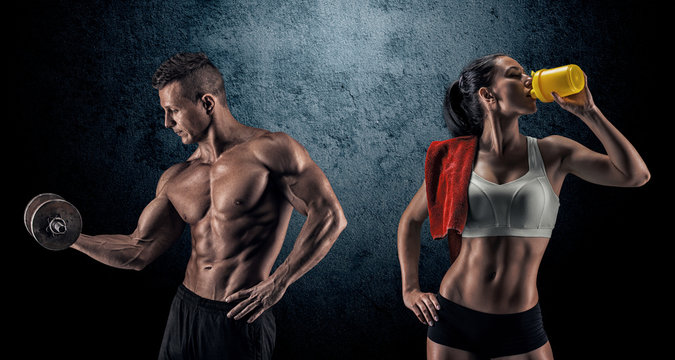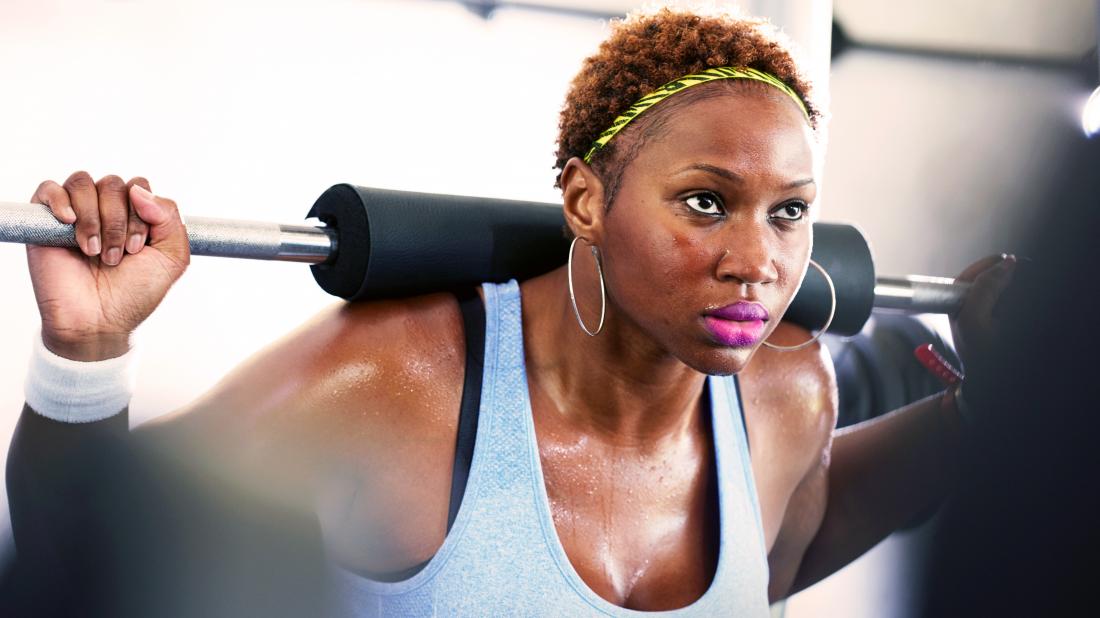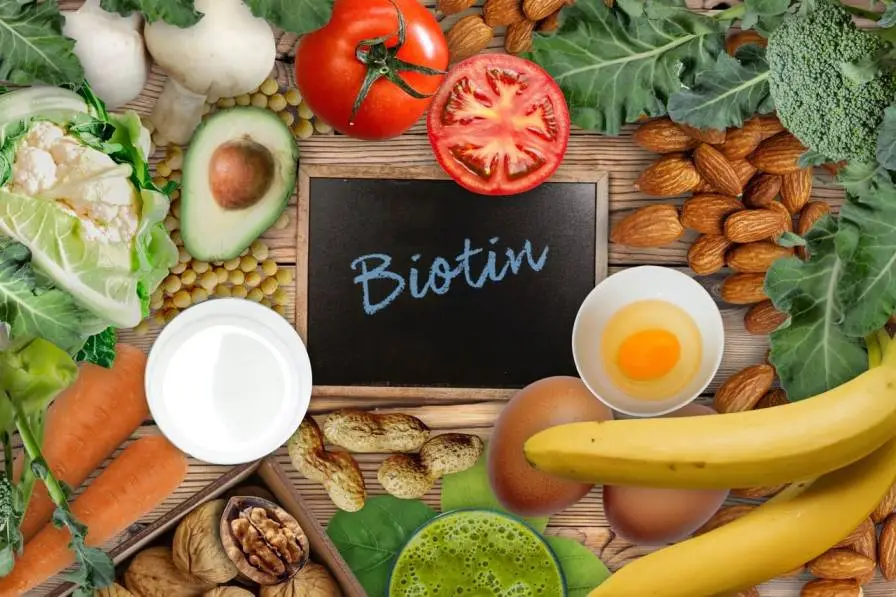The bodybuilding diet is a nutritional plan painstakingly created to maximize muscle development, strength building, and physical transformation. To maximize your results, this nutritional plan emphasizes on an exact balance of macronutrients—proteins, carbohydrates, and fats). Since the diet calls for consistency and patience, it is not just about what you eat but also about the dedication and discipline that distinguishes difference. The basic ideas of the bodybuilding diet's nutrition are covered in this article together with how to effectively use nutrition to meet your exercise objectives. Keep reading to discover more about the evidence behind this eating style!
What Is The Bodybuilding Diet?
Designed to complement bodybuilders' objectives, the bodybuilding diet is a dietary program. A type of strength training, bodybuilding aims to develop and shape muscle mass such that a very defined and strong body results.
To get best results in bodybuilding, one must follow specific fundamental ideas. These comprise:
Strength Building
Regular, rigorous training promotes muscular definition and growth. Strength exercise tones your muscles using resistance—that of your own body or outside items like weights. Often using focused exercises targeting different muscular parts with progressively rising weights and repetitions to challenge the muscles, it aims to.
Dietary Method
It is distinguished by tailored dietary plans meant to enhance muscle development and recuperation. The bodybuilding diet's scientific foundation lies in the management of macronutrients and calorie consumption to induce muscular hypertrophy or development.
This diet emphasizes on the consumption of proteins, lipids, and carbohydrates in a particular ratio since they are fundamental to support optimal health and enable you to acquire the desired body. Particularly protein consumption is important since it provides the amino acids required for synthesis of muscles. Carbohydrates help replenish glycogen, therefore guaranteeing continuous energy during intensive training. The synthesis of hormones such as testosterone, which is crucial for muscular development, depends on fats.
Often encouraged to aim for a normal macronutrient balance of roughly 25% to 30% of daily calories from protein, about 55–60% from carbohydrates, and roughly 15% to 20% from fats (6), bodybuilders are urged to
Your bodybuilding objectives will determine whether you want to follow either of two phases of the diet:
-
Usually increasing their calorie intake, bodybuilders focus on more carbohydrates and proteins to support muscle growth during the bulking phase. They combine this with a concentration on rigorous resistance training since it promotes development of muscle strength and growth. Usually lasting many months, this phase gives the body lots of opportunity to build muscular mass.
-
During the cutting phase, on the other hand, bodybuilders generally boost protein intake while lowering carbohydrates and lipids to help to lose extra body fat while maintaining muscle mass. Usually lasting a few months or until the intended degree of leanness is reached, this phase is focused about attaining a slim and defined body.
-
To best shape their bodies, bodybuilders alternate between these phases constantly. They deliberately develop muscle then shape it by losing extra body weight. Therefore, in terms of muscle size, definition, and general physique, a well-organized bodybuilding diet together with appropriate training can produce amazing results. Still, it's crucial to adapt the diet to personal objectives and keep close eye on development.
- This entails working with your healthcare provider together with an expert, such a registered dietitian or sports nutritionist, who can evaluate your particular goals, body composition, activity level, and dietary preferences to design a customized plan. They also consider any pre-existing medical issues or dietary limitations and assist assess your general health. Their advice will enable you create a perfect diet food plan that supports your performance. Not only may a well-suited bodybuilding diet improve muscular development, but it also provides other several advantages. Go on scrolling to find more about them.
Benefits Of The Bodybuilding Diet
The bodybuilding diet offers the following advantages in addition to better muscular strength and recovery.

1. May Help In Weight Management
- About 20 to 30 percent of your daily calorie consumption come from the bodybuilding diet, a high-protein diet. These diets keep you satisfied, preserve lean body mass, and boost the calories your body burns during digestion, thereby helping you lose more weight than low-protein diets (15–20%).
2. May Promote Bone Health
- Studies have indicated that a diet high in fruits, vegetables, low-fat dairy, whole grains, chicken, fish, nuts, legumes may help to maintain good bone health. It lowers a risk of fractures and increases bone density. Furthermore, there is some evidence suggesting that, as compared to a lower protein diet, a higher protein intake may offer protective effects for bone mineral density in the lumbar spine . To help bone health even more, this diet also emphasizes the consumption of vital minerals such calcium and vitamin D.
3. May Raise Insulin Sensitivity
- A well-balanced diet helps improve insulin sensitivity, hence controlling blood sugar levels. Those who run a risk of or deal with type 2 diabetes especially benefit from this.
4. May Promote Heart Health
- Better cardiovascular health results from including lean meats, nuts, and whole grains in your regular diet. These foods lower cholesterol and cut heart disease risk.
5. May Boost Mental Well-Being
- Usually, this eating plan is combined with strength-building activities meant to improve mental health. Exercise's endorphins and the dietary support for brain function can help to lower stress and improve mood (13).
6. May Improve Your Sleep
- This diet could help control your sleeping schedule. Following a consistent meal plan and eating balanced macronutrients could help you get better sleep quality and length.
7. May Reduce The Risk Of Chronic Diseases
- A healthy diet and muscle-building exercises used together might lower the risk of chronic diseases like obesity, heart disease, and several malignancies.
Therefore, it is imperative to design a diet according to your demand if you are to fully take use of these benefits. Match your food decisions with your particular fitness goals to unleash the full possibilities of the bodybuilding diet. Discover how to achieve this effectively by keeping on reading.
How Do I Plan A Diet For Bodybuilding?
Plan a customized diet for bodybuilding keeping these things in mind.

1. Control Your Anticipated Level
- Clearly state your reasonable objectives and specify your particular bodybuilding requirements. It could be emphasizing either general strength improvement or muscle gain or fat loss. Well stated goals will help you make better food decisions.
2. Determine Your Calorie Requirements
- Whether you add muscle (calorie surplus), reduce fat (calorie deficit), or keep your present weight, calorie intake significantly affects bodybuilding goals. Achieving particular fitness goals depends on you changing your calorie intake.
- Your daily calorie needs will depend on your goals, age, gender, weight, and degree of exercise. Online calculators and professional advice from a certified dietician will help with this procedure.
3. Emphasize on healthy meals.
- Lean meats, fish, chicken, vegetables, fruits, and low-fat dairy should all be part of your diet—whole, nutrient-dense foods. For general good health, these meals include vital minerals and vitamins.
4. Strain Macronutrients Appropriately
- Individual goals, tastes, and dietary requirements will all affect the macronutrient balance of a bodybuilding diet. As was already noted, bodybuilders often follow a normal daily macronutrient breakdown of roughly 25–30% of daily calories from protein, 55–60% from carbohydrates, and roughly 15–20% from fats. To acquire a tailored macronutrient breakdown depending on your particular goals and health state, though, you should see a qualified nutritionist or healthcare practitioner.
5. Give Pre- And Post-workout Nutrition Top Attention
- Craft your pre- and post-workout meals to maximize performance and recovery. Before and after exercises, a mix of proteins and carbohydrates might be quite beneficial. Furthermore crucial is appropriate hydration. Try to sip lots of water to help with digestion, muscle performance, and general wellness.
6. Think Of Protein-based Supplements
- Including branched-chain amino acids (BCAAs), protein powder, and creatine to your diet might help close nutritional gaps, avoid nutrient deficits, and promote muscle development. Before including supplements to your diet, though, be sure you speak with a dietician or healthcare professional.
- Recall that designing a bodybuilding diet cannot be done in a one-size-fits-all manner. Working toward your ideal weight and general fitness calls for perseverance and patience.
Having described your nutritional plan, the next challenge is understanding what to consume to meet your objectives. In the next part, find out what this diet lets you include. You may also read this: Best Methods for Women to Gain Muscle
Foods To Eat For Bodybuilding
These are the main food categories you should add into your diet to support your performance.

1. Lean Proteins
- chicken breast
- Turkey
- In moderation, lean cuts of beef
- Eggs and Fish
- Tofu; Legumes
2. Complicated carbohydrates
- Oats
- Brown
- rice
- Quinoa
3. Healthy Fats
- Avocados, nuts seeds olive oil
4. Vegetables & Fruits
- Apple Notes
- Cherry kale spin-off tomatoes
5. Cheese
- Greek yogurt
- cottage cheese
- Dairy substitutes based on plants
Apart from these items, you could incorporate sports drinks, protein smoothies, and other dietary supplements. Still, see the part below to find out more about the foods you should avoid.
Foods To Avoid On The Bodybuilding Diet
You should avoid these main food categories from your diet:
1. Made from processed foods
- Cans of fruit, vegetables, or fish
- Breakfast cereal dishes
- Meals prepared microwave-ready
- some varieties of cheese
- Bacon, sausage, and ham among processed meats.
2. Sugary Drinkers
- Soda: Artificial fruit juices
- Sugary drinks
3. Trans Fatty Acids
- Fried fare
- baked items
4. Alcohol Abuse
- Beer and any homemade ciders
- Limit even hard low-calorie liquors as whiskey, vodka, and rum to just one glass.
5. Slabs
- High-sodium munchies
- Minally nutrient-dense snacks
6. Meat Slabs with Fats
- T-bone steaks, ribs, pork belly
- thighs for chicken
Considering the meals listed above, we have developed an example bodybuilding meal schedule to get you going on this diet. To learn further, scroll down.




